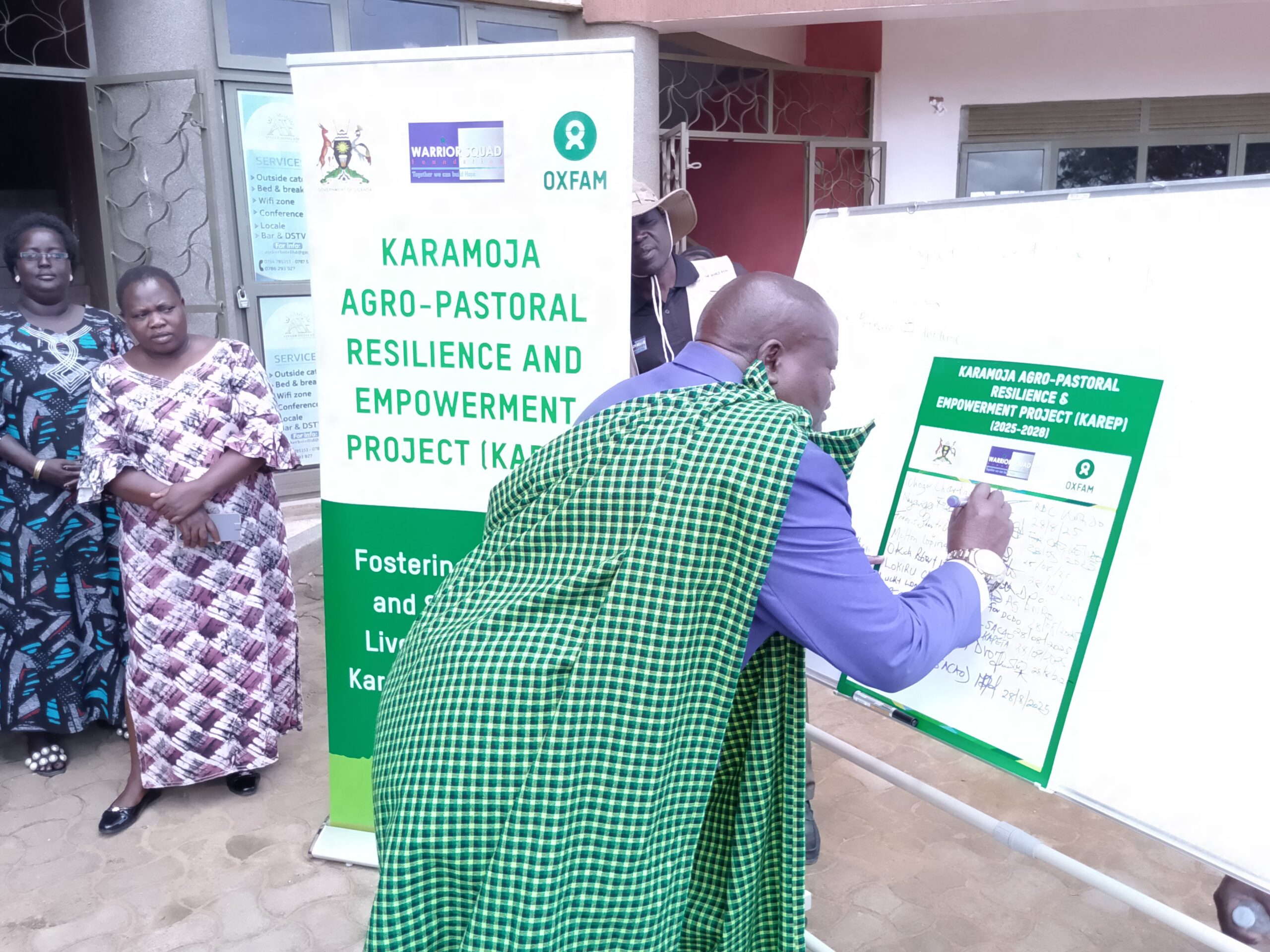KOTIDO, September 1, 2025 — In a significant move to boost food security and economic resilience among agro-pastoral communities in Uganda’s Karamoja region, the Warrior Squad Foundation, in partnership with Oxfam Uganda and with support from the Kane Family, has launched the Karamoja Agro-Pastoral Resilience and Empowerment Project [KAREP].
This ambitious Shs 2.8 billion initiative aims to transform the livelihoods of smallholder farmers in Napumpum and Kapeta sub-counties by building resilience to climate change. Key strategies include sustainable hay production and improved livestock welfare, with a particular focus on empowering women, who make up 60 percent of the 300 targeted beneficiaries.
The KAREP employs a range of innovative, community-driven approaches: Agro-Pastoral Farmer Field Schools [APFFS]; Climate-Smart Agriculture [CSA]; and Community-Based Rangeland Management [CBRM].
These methods aim to foster sustainable food production systems and mitigate the harsh effects of climate change, which has forced many Karamojong communities into seasonal migration in search of pasture during prolonged dry spells.
Hay production: A game-changer for livestock farmers
Given Karamoja’s frequent droughts and limited natural resources, the introduction of hay production stands to revolutionise livestock feeding practices. By enabling farmers to store nutritious feed, communities will be less vulnerable to erratic rainfall and livestock losses.
Local farmers are already embracing the promise of the KAREP.
“For years, we have suffered from the uncertainty of drought and the constant migration of our cattle in search of pasture,” shares Daniel Lojamoe Lokure, 45, a farmer from Napumpum.
“With the support of this project, we can learn to produce hay and ensure our cows are well-fed even when the rains fail. This is a game-changer for us.”
Women at the heart of agricultural transformation
Empowering women is a core component of the initiative. Selina Auma, 38, a livestock farmer from Kapeeta, highlighted the importance of inclusive development:
“Empowering women like me is vital for our community’s future,” she said.
“With access to training and resources, I can not only improve my family’s food security but also contribute to the local economy. I’m excited to work with other women in our group to advocate for better agricultural decision-making.”
Maria Akech, another local livestock farmer, echoed these sentiments: “We are excited because this initiative will enable us to produce hay, which will significantly improve our cows’ nutrition.
This means we won’t have to travel long distances during droughts to find pasture, helping us preserve our herds and secure our livelihoods.”
A Holistic approach to resilience
The KAREP is not just about agricultural inputs, it’s about building a resilient system. The programme incorporates water resource management, ecosystem restoration, and market access initiatives such as community cereal banks, and producer marketing groups, creating a comprehensive and community-oriented framework.
“This isn’t just about providing resources, it’s about fostering a sustainable system that empowers communities to manage their own resources and adapt to the challenges of climate change,”
said Francis Shanty Odokorach, of Oxfam Uganda, during the project launch.
Looking Ahead: Challenges and opportunities
Despite the enthusiasm, the project faces key challenges. Long-term success will require ongoing support, capacity-building, and education to ensure new practices are maintained. Questions around the scalability of the model remain.
Charles Ichogor, the Kotido District Resident Commissioner [RDC], voiced these concerns: “This is a very good project, but many areas face similar challenges. My concern is whether these ideas and support can be extended to them.”
A vision for a resilient Karamoja
Despite these considerations, the launch of KAREP represents a beacon of hope for a more resilient future in Karamoja. By equipping agro-pastoralists, particularly women, with the tools, training, and knowledge to adapt, the project is helping build a foundation for food security, economic empowerment, and environmental stewardship.
As excitement grows among local communities, the KAREP signals a positive shift, towards prosperity, sustainability, and resilience in one of Uganda’s most climate-vulnerable regions.
Buy your copy of thecooperator magazine from one of our country-wide vending points or an e-copy on emag.thecooperator.news
